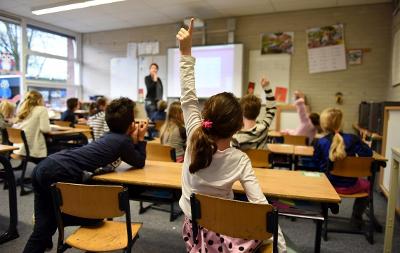Inspectors find series of improvements in services for children and young people with special needs


Children and young people with special educational needs and disabilities (SEND) in Stockton-on-Tees are benefiting from improved services, inspectors have found.
Inspectors say "sufficient progress" has been made in addressing weaknesses since a joint local area SEND inspection in 2019.
Their findings follow a revisit in July this year, during which inspectors spoke with children and young people, parents and carers, and Council and NHS staff.
What is a joint local area SEND inspection?
These joint inspections are conducted by inspectors from both Ofsted and the Care Quality Commission (CQC).
The inspectors review how the needs of children and young people with SEND are met in their local area.
They look at how education, social care and health professionals work together across the local council and NHS, and how they work with other key partners.
What did the inspectors find on their revisit?
In a six-page report, inspectors pointed to "a substantial amount of work" by the Council and NHS Integrated Care Board (ICB) to improve communication with parents.
This includes senior leaders attending public meetings to listen to families and close working with the Stockton Parent Carer Forum to develop and shape services.
But inspectors noted more work needs to be done to reach a greater number of parents and carers, with some still feeling frustration.
Inspectors found that the quality of education, health and care (EHC) plans had improved following a "root-and-branch rebuild of the EHC plan process and format".
An EHC plan is a legal document which describes a young person's needs and sets out the extra help they will get to ensure their needs are met.
Young people told inspectors they had been involved in the development of their plans and they "accurately represent them as a person and what they want for the future".
Joint commissioning arrangements, in which ICB, education, local authority and SEND professionals work together, have improved, with inspectors noting a "cultural shift" in how education and SEND professionals collaborate.
The ICB's work to "improve care and support for mental health needs in schools" was also highlighted, as was joint work to understand the impact of disrupted sleep patterns on families.
A stronger focus on outcomes was also welcomed, with children and young people having a data scorecard that gives leaders a snapshot of how they are performing.
What do the Council and ICB think?
In a joint statement, Councillor Lisa Evans, the Council's Cabinet Member for Children and Young People, and David Gallagher, Executive Director of Place Based Delivery for the Tees Valley and Central at NHS North East and North Cumbria ICB, said: "We're greatly encouraged by these findings, while recognising of course that there is still a lot more work to do.
"After the areas of weakness were identified in the 2019 report, we had some very honest conversations with parents, carers and children and young people and listened very carefully to what they had to say.
"We put together an action plan to bring about the necessary improvements and we're pleased that inspectors have recognised the progress we are making. We remain ambitious and wholly committed to further improvement.
"We'd like to thank parents and carers, and of course the children and young people, for working with us and supporting us throughout. We'd also like to thank our staff for their relentless commitment to improving the lives of the people we serve."
For Council news direct to your inbox sign up to our My Council Newsletter.




